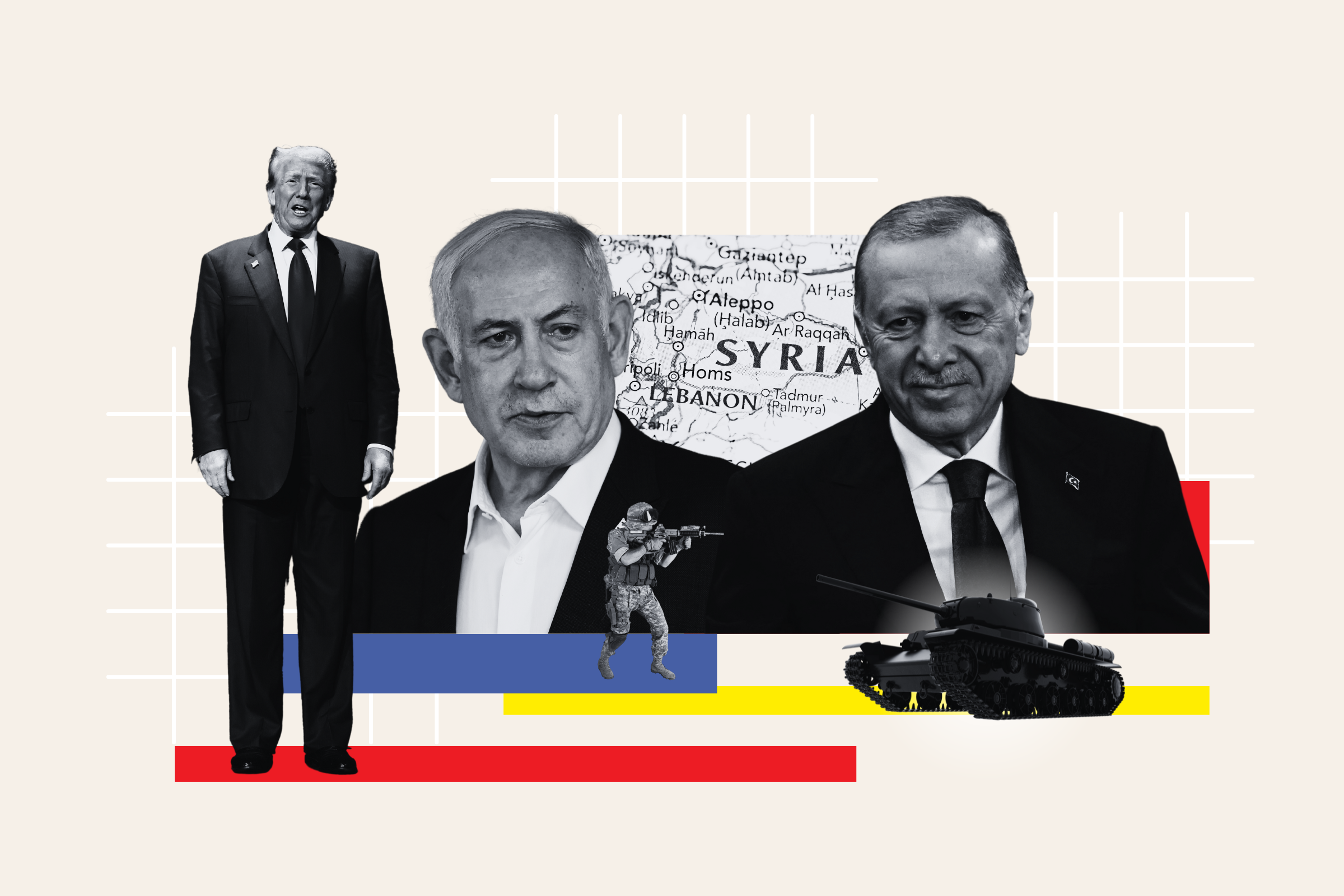As regional and international stakeholders scramble to strike a deal over the war in Gaza, a dangerous rivalry is escalating between U.S. allies Israel and Turkey in Syria, where geopolitically fueled conflict persists three months after the fall of President Bashar al-Assad.
Israel, emboldened by victories in its war with Hamas and Iranian allies in the region, has taken advantage of Syria's post-Assad chaos to seize more swathes of southern land beyond the long-occupied Golan Heights and establish a new buffer zone against potential foes. The Israel Defense Forces (IDF) have also intensified airstrikes against Syrian military positions and have sought to foster contacts with local Druze and Kurdish minority communities of the majority-Arab nation.
Turkey, an increasingly influential regional power and member of the U.S.-led NATO alliance, maintains bases in the north and has set out to leverage close ties with Syrian opposition factions to assert its position in the absence of Assad allies Iran and Russia, whose influence have waned after the longtime Syrian leader's ouster at the hands of an Islamist-led rebel offensive in December. Ankara also recently struck a ceasefire deal to quell the decades-long insurgency waged by the Kurdistan Workers' Party (PKK) from Syria and Iraq.
U.S. President Donald Trump has expressed admiration for both Israeli Prime Minister Benjamin Netanyahu and Turkish President Recep Tayyip Erdogan, viewing them as pivotal players in his emerging vision for the Middle East. But with the two men now locked in an increasingly volatile duel, some observers have warned of a potential clash on the horizon if they could not properly manage their opposing interests in Syria.
More

 www.newsweek.com
www.newsweek.com
Israel, emboldened by victories in its war with Hamas and Iranian allies in the region, has taken advantage of Syria's post-Assad chaos to seize more swathes of southern land beyond the long-occupied Golan Heights and establish a new buffer zone against potential foes. The Israel Defense Forces (IDF) have also intensified airstrikes against Syrian military positions and have sought to foster contacts with local Druze and Kurdish minority communities of the majority-Arab nation.
Turkey, an increasingly influential regional power and member of the U.S.-led NATO alliance, maintains bases in the north and has set out to leverage close ties with Syrian opposition factions to assert its position in the absence of Assad allies Iran and Russia, whose influence have waned after the longtime Syrian leader's ouster at the hands of an Islamist-led rebel offensive in December. Ankara also recently struck a ceasefire deal to quell the decades-long insurgency waged by the Kurdistan Workers' Party (PKK) from Syria and Iraq.
U.S. President Donald Trump has expressed admiration for both Israeli Prime Minister Benjamin Netanyahu and Turkish President Recep Tayyip Erdogan, viewing them as pivotal players in his emerging vision for the Middle East. But with the two men now locked in an increasingly volatile duel, some observers have warned of a potential clash on the horizon if they could not properly manage their opposing interests in Syria.
More

Trump's top two Middle East allies are on a collision course in Syria
"A confrontation, possibly even a small-scale military one, may occur between Israel and Turkey," one expert told Newsweek.
